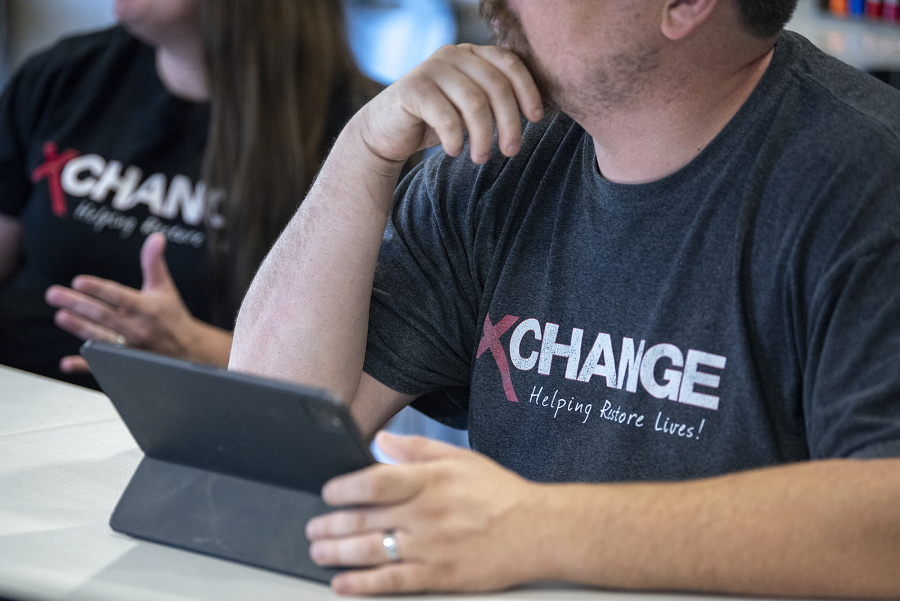“This bill is not designed to fill our jails; it’s designed to fill our treatment centers,” Gov. Jay Inslee said after he signed a passage that redirects Washington’s drug policies.
Senate Bill 5536, known as Blake Fix, was a polarizing topic for lawmakers during the regular 105-day session earlier this year. Democrats and Republicans were close to striking a deal, but it crumbled before the final gavel.
However, on Monday, Inslee and the Legislature brought the bill back to life during a special session, and within hours, the state had made drug possession a gross misdemeanor punishable by up to six months in jail for the first two offenses and up to a year after that. The bill encourages law enforcement and other prosecuting officers to channel people to treatment services.
“This will actually get treatment accomplished,” Inslee said. “This is a statewide solution to a statewide problem.”
Clark County officials who specialize in recovery treatment say the passage, for the most part, is leading the state in the right direction to serve people dependent on drugs — yet it is also not a black-and-white issue.
“It is a very complex question of what is the right thing to do around the legal status for drugs. I’m not sure there is a perfect answer,” said Kevin Fischer, chief medical officer for Columbia River Mental Health Services.
Projections for more resources
The bill was signed on the heels of a July 1 deadline, at which point the temporary law, put in place in 2021, would have expired — decriminalizing drug possession under state law.
In 2021, the Washington Supreme Court declared that the state’s drug-possession law was unconstitutional because it did not require prosecutors or law enforcement to prove that a person knowingly had substances on them. In response, lawmakers downgraded drug possession to a misdemeanor and required law enforcement to refer people to treatment after their first two offenses.
The Recovery Navigator Program through the Recovery Cafe of Clark County was formed in 2021 in response to the original State v. Blake decision. The program provides recovery support for community members identified by law enforcement or other officials.
“I think the state recognized the need to devote better access to treatment, and this bill might help with us getting that,” said Barbara Gerrior, program coordinator for the Recovery Navigator Program.
A recent study showed that Washington is placed third — behind Oregon and Colorado — for the highest rate of adults with unmet treatment needs.
An opioid and drug-overdose dashboard launched in April by the Washington State Department of Health showed overdose deaths in Clark County doubled between 2016 and 2021 — rising from 58 to 117 deaths.
The Blake Fix aims to curb these numbers, according to supporting lawmakers. With its treatment emphasis, the state will provide $44 million toward educational resources, crisis centers, methadone mobile units and short-term housing for recovering substance users.
“I think (the bill) is giving these people (who have substance-use disorders) the help that they need to try and make a change,” said Vicky Smith, program director for Xchange Recovery, a faith-based nonprofit that provides housing, recovery classes, clinical services, street outreach and recovery-based church services in Ridgefield and Battle Ground.
Smith said stable housing after treatment plays a critical role; without it, many people can face barriers to remaining sober.
The passage also continues local control over harm-reduction programs like needle-exchange services, safe injection sites and other programs to prevent overdoses.
Locally, Gerrior said, the bill would help agencies like the Recovery Cafe and the Navigator Program expand resources to community members who are substance dependent. She thinks relationships between the Recovery Navigator Program, law enforcement and local courts will strengthen due to the bill’s passing.
“This is another step forward for providing people with resources toward treatment and long-term recovery,” said Gerrior.
More treatment
One of Fischer’s responsibilities as a medical director is facilitating the opiate treatment program at the Clark County Jail. The program started in 2019 and offers the incarcerated medication-assisted treatment for opioid-use disorders.
Fischer said the 2021 decision to decriminalize drugs led to a decrease in drug-possession charges, which resulted in fewer people getting treatment in jail settings.
“There was definitely a significant decrease in the number of inmates with minor charges coming into the jail setting after the onset of the pandemic, and then it was doubly intensified with the Blake decision and the drop of penalties for drug possession,” said Fischer. “We really lost an opportunity to both engage with people and be in a setting where they might be open to starting treatment.”
One of the things that he anticipates happening with the Blake Fix is the resurgence of treatment as more individuals are incarcerated for brief periods.
“If you can put a silver lining on something like that, then I would say that we will be able to get folks in front of services,” said Fischer. “That might get them into recovery and help change the trajectory of their views for the positive.”
In 2020, Oregon became the first state to decriminalize the possession of drugs. Its Measure 110 has seen mixed results, as did Blake’s two-year run in Washington.
“I think we’ve all seen in Portland and then in Washington that not having rules or limits can be a bad thing on our streets, sidewalks, buses and other public places,” Fischer said. “From the standpoint of having an ordered society and safe places in public, I think it’s important to have restrictions.”
Yet he added that a flip side to the equation makes the Blake Fix murky water to tread.
“When you end up criminalizing these behaviors, and then once somebody comes into recovery, they’re left with a criminal record that is often with them for the rest of their life,” Fischer said.
A prison record can have lifelong implications that complicate a person’s access to housing, employment and custody, among other things.
“These are the very things that we need them to have in order to have a stable and sober life,” said Fischer. “So I actually personally don’t know how I feel about this in terms of the right thing to do in America because it’s definitely a complex issue that doesn’t have a black-or-white answer.”




